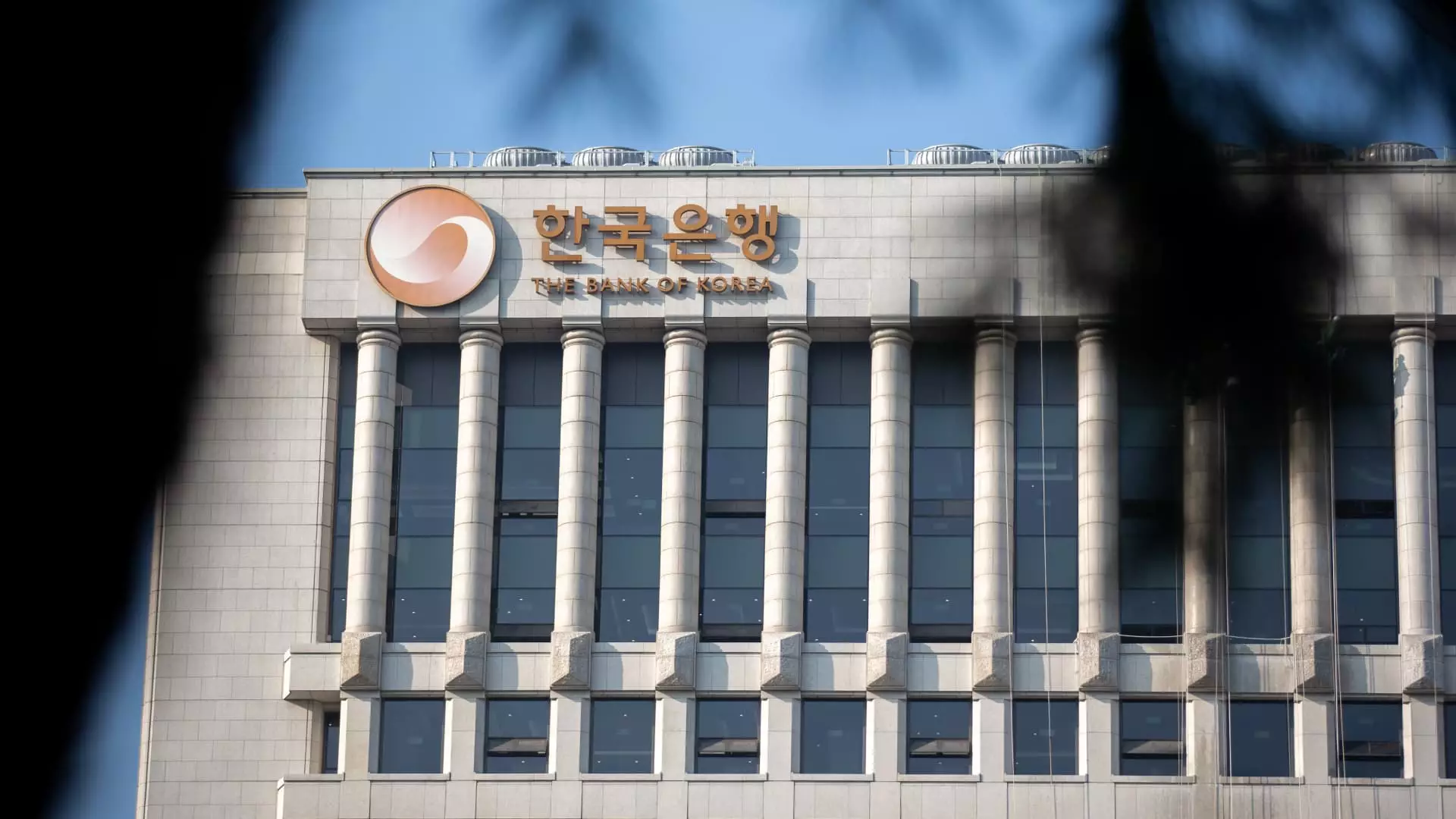In a precarious balancing act, the Bank of Korea has decided to cut its policy interest rate by 25 basis points in a move that echoes the anxieties surrounding South Korea’s economic and political landscape. Dropping the rate from 2.75% to a meager 2.5%, the central bank’s decision feels less like a proactive strategy and more like a desperate attempt to stabilize an economy beset by myriad challenges. This marks the fourth cut in just six meetings—not exactly a sign of confidence in economic recovery. South Korea’s citizens are now caught in a web of uncertainty not just due to the lingering shadows of political turmoil, but also a global economic environment that grows increasingly hostile. The backdrop is worrisome: the remnants of a botched attempt by former President Yoon Suk Yeol to impose martial law still color the political climate while the specter of Trump-era tariffs looms overhead.
Political Fallout: Turmoil and Elections
The recent history of leadership crises in South Korea has made the electorate weary, but a glimmer of hope lies ahead with the impending presidential election on June 3. The snap elections were triggered by President Yeol’s impeachment, a chaotic political episode that has eroded public faith in governance. Now, as leaders scramble to negotiate terms with the U.S., the question remains whether the incoming president will bring the much-needed calm and direction that the country desperately requires. There is immense pressure to finalize tariff agreements before a July 8 deadline, and yet trade officials express concerns about the feasibility of these negotiations amid the unpredictable tides of political candidacy and campaigning. The consequences of a failure to reach a timely agreement could further aggravate an already sensitive economic situation.
A Contraction in Growth: An Alarming Indicator
Economic contractions are never benign; however, witnessing South Korea’s GDP shrink by 0.1% year-on-year in the first quarter is a sharp wake-up call. This marks the first contraction since late 2020, a period when the world still struggled under the weight of the pandemic. The central bank’s attribution of the rate cut to expected declines in economic growth suggests a proactive if cautious outlook. The intent to mitigate risks and adjust future policy in response to both domestic and external stimuli feels more like a necessary strategy rather than an assured path forward. With the promise of a “broadly stable” inflation, there lies a paradox—price stability amidst a stagnant economy may lead to an unsustainable scenario if consumer confidence continues to plummet.
Future Forecasts: A Dim Outlook
A sobering forecast from economic analysts paints a bleak picture. The Bank of Korea’s adjustment of its GDP growth expectations for 2025 from 1.5% down to just 0.8% symbolizes the depth of challenges ahead—not just from inflation or tariffs, but from a dampened consumer spending landscape. Gareth Leather, a senior economist at Capital Economics, suggests that fiscal stimulus instated by the new president could, albeit marginally, uplift consumer expenditures. However, a potential recovery appears precarious and perhaps insufficient to navigate the wreckage of the property sector and declining export numbers. The estimates of full-year GDP growth dwindling to just 0.5% depict an economy teetering on the edge, posing questions on how much longer the country can weather this economic storm.
The Market’s Response and Broader Implications
Interestingly, the immediate reactions in financial markets tell a multifaceted story. The Kospi stock index surged by 1.25%, reflecting an optimistic, albeit speculative, investor sentiment post-announcement. Yet, juxtaposed against this is the South Korean won, which weakened significantly against the dollar, trailing a notable 0.71%. Such market responses are the double-edged sword of economic uncertainty—they reveal investor enthusiasm while simultaneously indicating deeper concerns about the national currency’s stability. For a society already floundering under political and economic pressures, these fluctuations carry broader implications for public morale and trust in governance.
As South Korea grapples with an uncertain future marked by fragile political leadership and economic discontent, the pressing need for clear, decisive, and constructive governance has never been more essential. Each misjudged move may ripple beyond the confines of economic policy, potentially deepening disillusionment among a populace straining under the weight of ongoing trials.

Leave a Reply